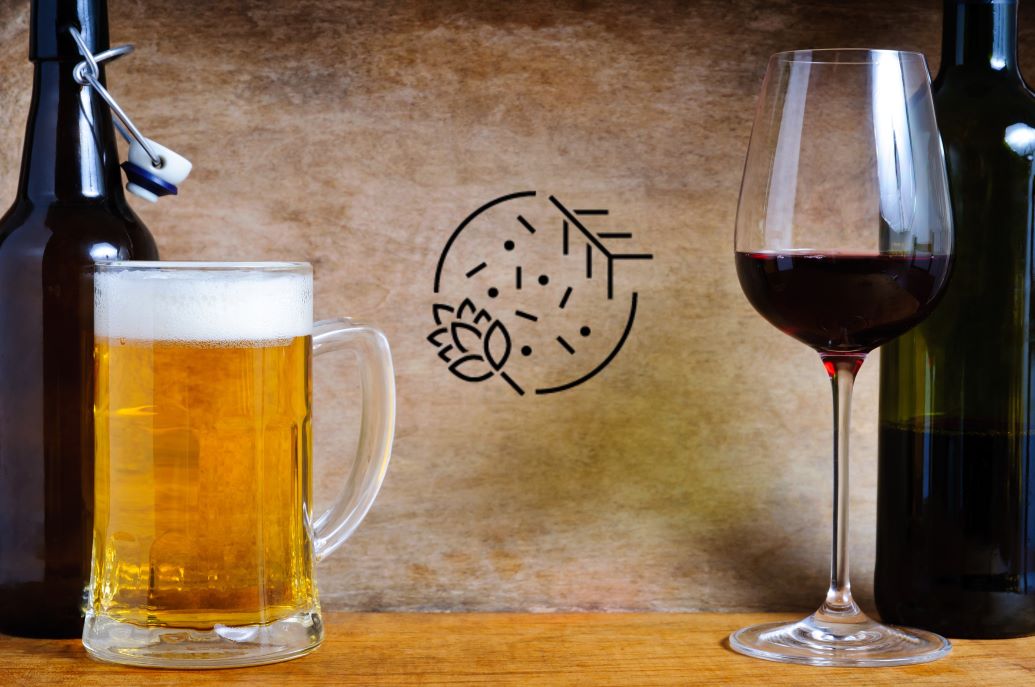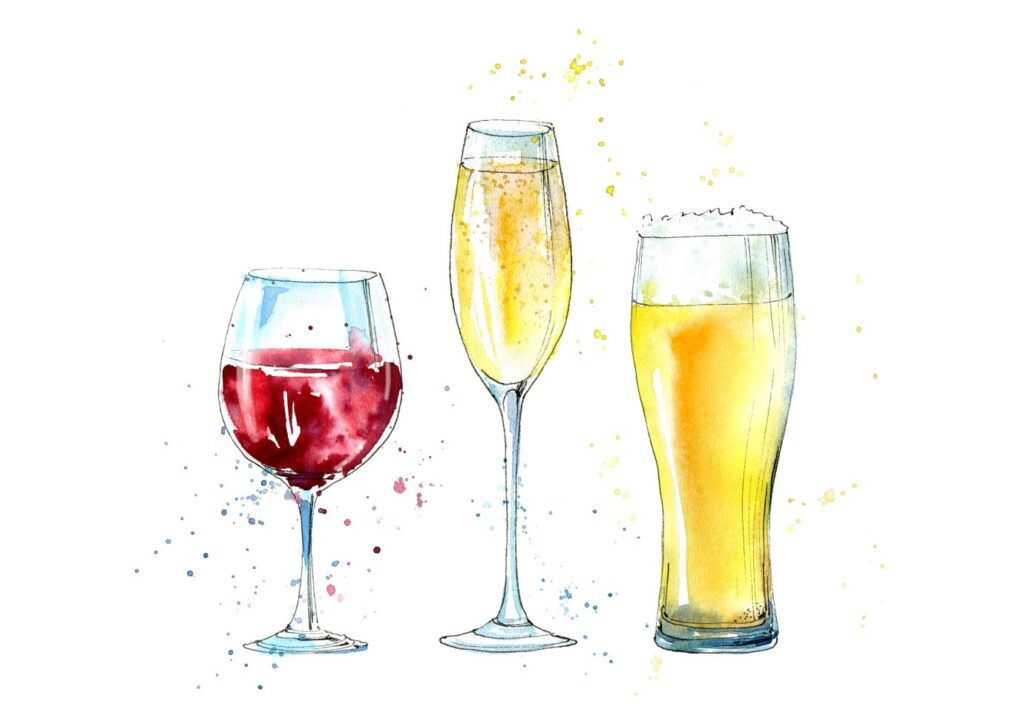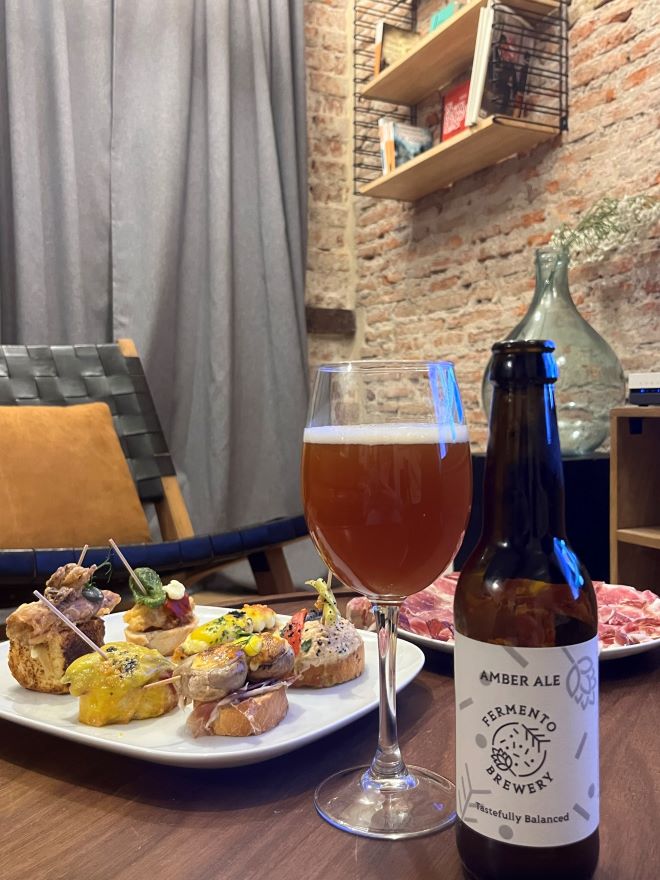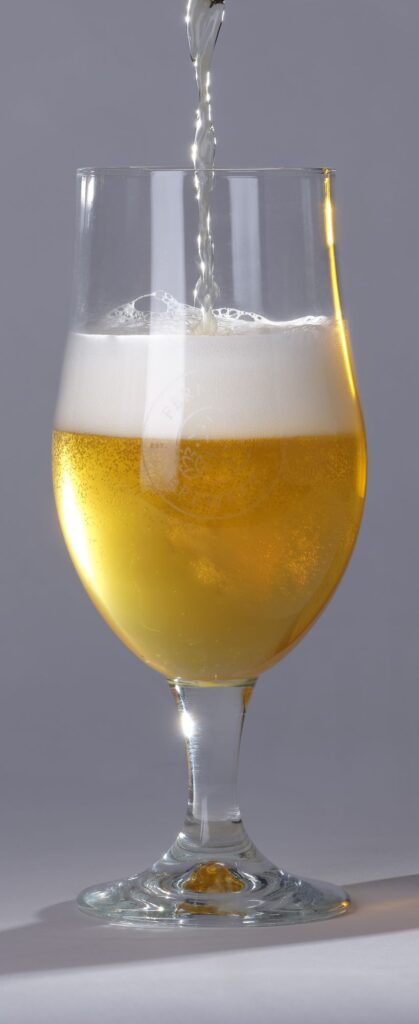
In Switzerland when invited by a friend for dinner or a weekend meal, it is a good practice to bring a bottle of good wine. It is customary to aim for a specific price range for this gift and not to go below it. At least this is what I have heard around a few times…. I drink good wine (as well as beers, of course) and it makes me uncomfortable to think of a gift based only on its price. I know excellent wines that are priced below the ‘conventional’ price for a gift wine, as well as wines that are overpriced for the quality they actually offer.
Regardless of the price, my decision is simply buying what is good to drink. I have also no problem bringing beers when invited by friends for a meal. In my mission to pair great beers with great food, I sincerely wish that my acquaintances who appreciate craft beers (and in particular Fermento beers) could also enjoy their goodness with delicious food.

Beer vs wine is a great topic of conversation and dispute. What is superior, healthier, tastier, better with food?
A general belief, and in my opinion a big taboo, is that wine always goes with gourmet food and is more elegant than beer, which goes well with less elaborate dishes such as barbecues, burgers, fish and chips, etc. That is why every weekend, at dinnertime here in Basel, jyou see people walking along carrying a bottle of wine to go to a friend’s for lunch, or a few beers if it is an invitation to a barbecue. However, habits are gradually changing and there are more and more beer lovers who enjoy consuming craft beer with a more sophisticated menu.
Rather than establishing which of the two, beer or wine, is better, in this blog article I would like to address in which situations beer should be preferred to wine. Finally, learning from wine, I would like to propose a very good reason for choosing craft beer.
Beer VS wine: Choose craft beer to staylight
If two glasses of the same size are filled with wine and beer, the beer glass contains less alcohol and calories. This makes beer much more attractive to all those who want to remain ‘light’ in terms of alcohol. Furthermore, beer does not contain added sulphites, like most wines (just check the labels on wine bottles). Sulphites preserve and act as antioxidants, for instance to maintain the colour of white wine, but they can also be responsible for severe headaches for those who are sensitive to them or for those who drink one glass too much. Of course, good wineries use this substance very wisely and carefully, producing well-made and healthy wines. This is why I always recommend
choosing wines from serious and experienced producers rather than wines based only on price or, even worse, only on the design of their labels. Brewers, on the other hand, have no reason to add sulphites to their beers. Some people I know claim to experience a bloated feeling when they drink beer. This happens when artificial gas is added. This is a very common practice in cheap, neutral-tasting beers,where producers add gas and carbonated water to ‘adjust’ the alcohol content of the beer. No wonder these beers have no flavour…. This practice also produces large and ‘aggressive’ gas bubbles that cause the bloating effect.
Most craft brewers do not add artificial gas or carbonated water before bottling, but use the gas produced by the yeast. For example, we at Fermento use this practice to ferment beer in the bottle, using only yeast and without adding artificial gas. The bubbles in our craft beers are fine and delicate, similar to those found in champagne bottles, where wine is also (re)fermented in the bottle.
Beer vs wine: choose craft beer to discover a more defined taste
What a variety of taste in beer! In general, each taste is more defined than wine. For example you can find chocolate taste notes in a wine, however often they are mildly perceptible. I find that these are much more defined in a good, crafted beer. Stouts are the beers with most of the chocolate taste. The Fermento stout Liberica is brewed using a mix of roasted malts and has a defined chocolate taste, balanced with other aromas of coffee, black pepper, etc.
In addition, beers also satisfy some of the main senses that wines cannot cover, such as the bitterness of IPA beers given by the hops, the sourness of sour beers and even the saltiness of some speciality beers.

Beer VS wine: Pair beer with great food
I am personally convinced that great beers deserve great food. Beer pairs well, or sometimes even better, than wine with gourmet food.
For example, I found the perfect combination of Fermento craft beers with artisanal cheeses from the best Swiss and French producers. Stout and amber beer go perfectly with wagyu steak, a top quality beef, and stout goes very well with chocolate desserts and tiramisu in particular. So well, in fact, that the Birramisu inspired Tiramisu recipe uses stout beer as one of the ingredients in its preparation.
Beer is superior to wine when paired with pickles, battered fried food and with several desserts for example of the Christmas tradition.
All you need to do is get the best craft beers and the best food for the most enjoyable experience. To avoid disappointment, avoid buying beers that taste neutral and are only good as refreshments.

Beer VS wine: Choose craft beers to make beer great again, like wine.

About 35 years ago, the shelves of Italian supermarkets were 80-90% full of table wines, neutral in taste and cheap. The remaining shelves were occupied by a few prestigious French and Italian wines. With time, things have changed and today table wines occupy a very small portion of the shelves, while many quality and tasty wines of different prices populate the great majority of supermarket shelves. With time, Italian wine shifted from mass neutral products to quality ones.
Can you imagine walking into a supermarket today and finding only table wines? Well, this is the current situation in the beer industry. Today, cheap, neutral-tasting beers occupy the vast majority of supermarket shelves. I call this the “neutral tasting beer“, to compare it to the table wine of 35 years ago. It will make the beer industry great again, by reducing the “neutral tasting beer” and making more room for quality craft beers.
There is only one way to change this and that is to purchase only craft beers. Buying craft beer today is more valuable than simply supporting small, local producers. It will make the beer industry great again, by reducing the “neutral tasting beer” and making more room for quality craft beers This is exactly what our parents did 35 years ago, moving from table to artisanal wine, thus promoting the development of quality wine.
Hopefully, in a few years time, we will see more craft beer and less neutral tasting beer in supermarkets. Probably, beer VS wine will still be a topic of conversation. However, more and more people will have experienced and learnt about the quality and taste of real beer.
I believe that the development of the wine industry over the last 35 years is an example for us brewers and I invite everyone to follow the Fermento blog to learn more about great craft beers and how craft beer pairs very well with good food.
Follow us on our journey and let me know what topics you would like to learn more about craft beers.